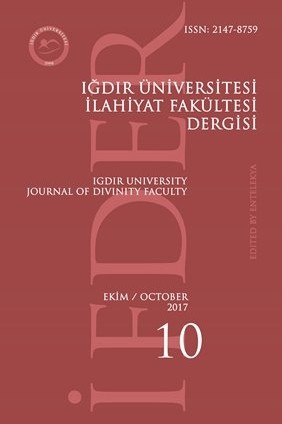Adâletin Mahiyeti Üzerine
Tek elyazması Meşhed’de Âsitâne-i Kudsi Rezavî Kütüphanesi’nde bulunan Miskeveyh’in bu risâlesi, girişinden de anlaşılacağı üzere, Ebû Hayyân et-Tevhîdî’nin adâletin mahiyeti üzerine sorduğu soruya verilen bir yanıttır. Ortaçağdaki biyografi eserlerinde Tehzîbu’l-Ahlâk’ın gölgesinde kaldığı için adı anılmayan risâle, Aristotelesçi adâlet anlayışının bir özetini sunar. Ancak unutmamak gerekir ki, Miskeveyh bu risâlede yalnızca Aristotelesçi gelenekten değil, aynı zamanda Yeni Platoncu ve Pythagorasçı felsefe geleneğinden de büyük ölçüde etkilenmiş görünür. Bu risâlede adâletin doğal, uylaşımsal ve Tanrısal olmak üzere üç türü incelenmektedir. Eseri önemli kılan hususlardan biri, hiç kuşkusuz, İslâm dünyasında ‘ortak duyu’ kavramının ilk kez bu risâlede kullanılıyor olmasıdır. Mahiyete ilişkin bir eser olması, risâleyi hukuk ve ahlâk felsefesinden çok metafizik bir araştırma kılmaktadır.
Treatise on Essence of Justice
This treatise of Miskawaih existing only manuscript at Astana Muqaddasa Razawi Library in Mashhad, as it is seen from its name, is an answer to Abu Hayyan al-Tawhidi’s question on justice. The unnamed treatise in the biographical works in the Middle Age because of overshadowed Tahdhib al-Akhlaq presents a summary of Aristotelian conception of justice. But it should not be forgotten, in this treatise Miskawaih seems affected from not only Aristotlian tradition but Neo-Platonic and Pythagorean philosophical traditions as well. In this treatise is examined three kinds of justice as natural, conventional and divine. One of the matters making the treatise important is undoubtly first using the concept of ‘common sense’ in this treatise in Islamic world. Since a work concerning essence, the treatise is a metaphysical inquiry rather than philosophy of law and ethics.
